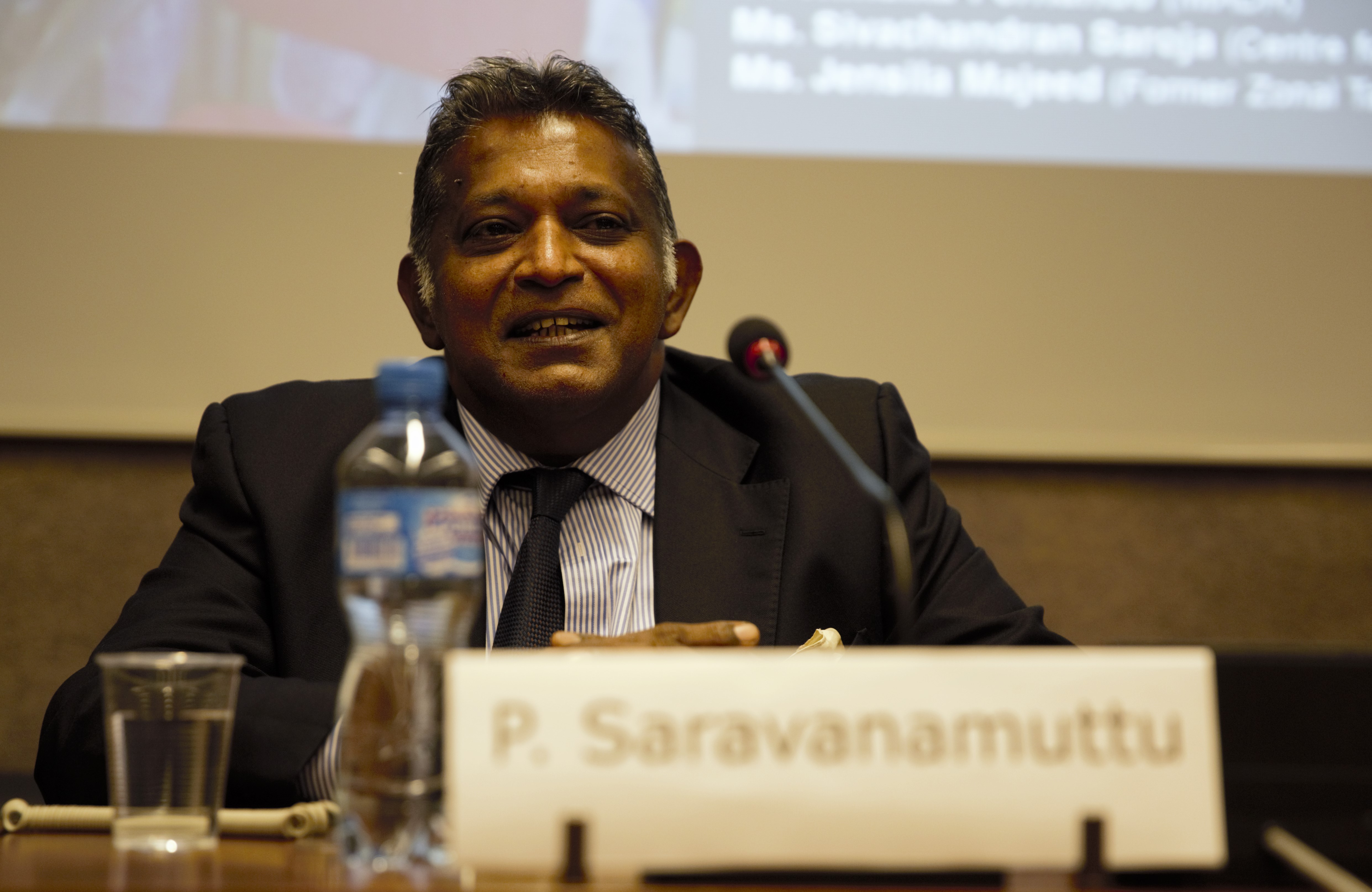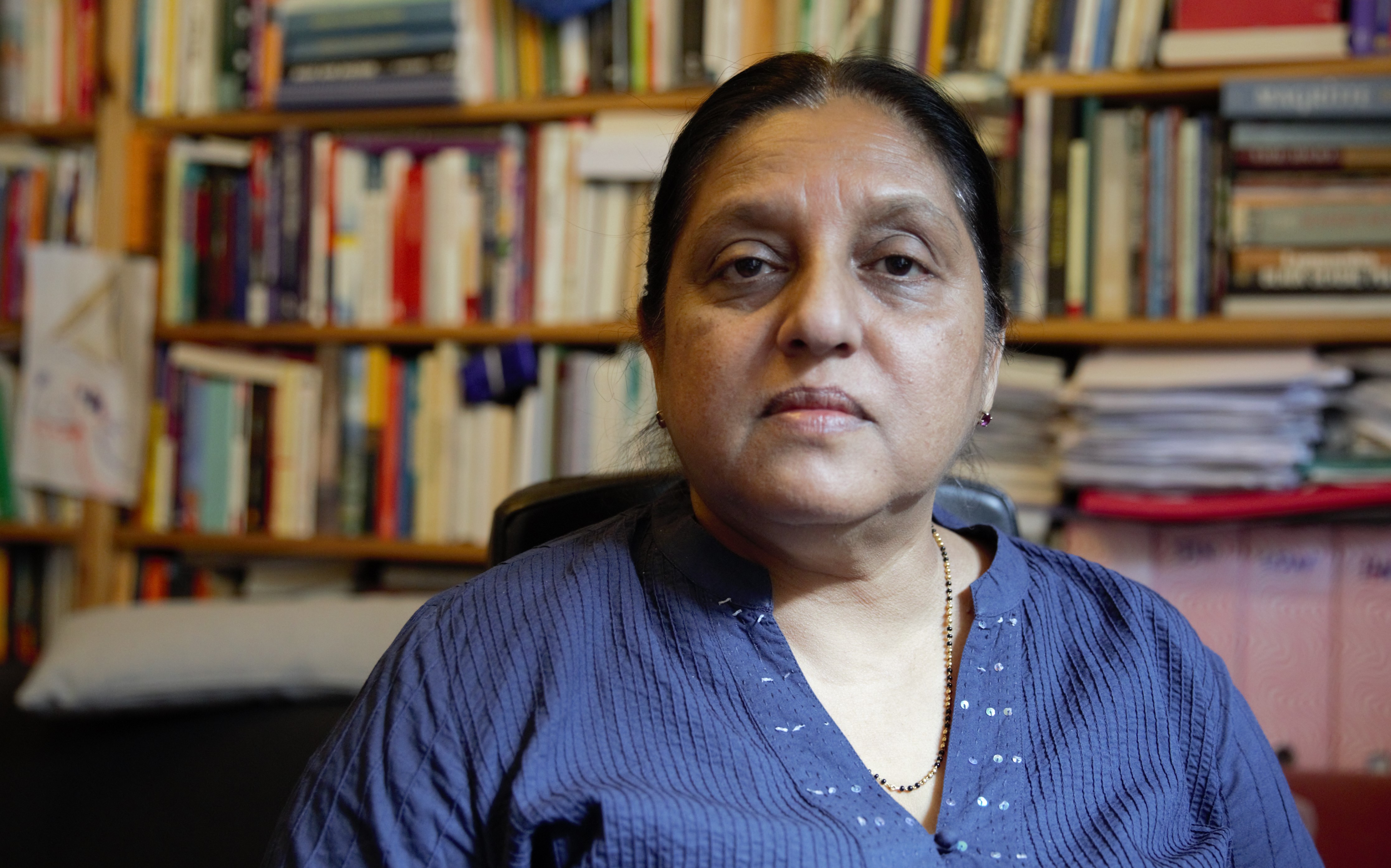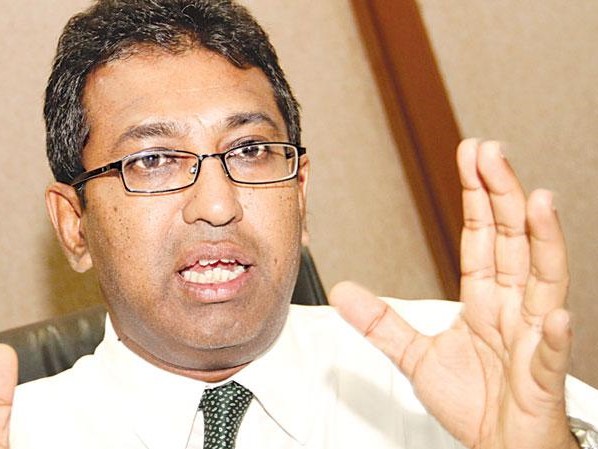Image: Sitti, a Sri Lanka mother of a disappered son taking a rest during a demostration in front of UNHRC HQ in Geneva, March 2015. (c)s.deshapriya.
Two prominnat human rights defenders of Sri Lanka and Deputy Foreign Minister speeks on the contested issue of participation of foreign judges in Sri Lankan judicial Mechanism, that is to be set up as one of the four fillers of Transitinal Justice process in Sri Lanka.While the Deputy Minster reject the notion of hibrid court out right two HRDs says that international participation in the Judicial Mechanism is not the main issue.
Thisis what the item 6 of the The UNHRC resolution 30/1 on Sri Lanka, which was cosponsored by the Government of Sri Lanka says on the international participation:
“6. Welcomes the recognition by the Government of Sri Lanka that accountability is essential to uphold the rule of law and to build confidence in the people of all communities of Sri Lanka in the justice system, notes with appreciation the proposal of theGovernment of Sri Lanka to establish a judicial mechanism with a special counsel toinvestigate allegations of violations and abuses of human rights and violations of international humanitarian law, as applicable; affirms that a credible justice process should include independent judicial and prosecutorial institutions led by individuals known for their integrity and impartiality; and also affirms in this regard the importance of participation in a Sri Lankan judicial mechanism, including the special counsel’s office, of Commonwealth and other foreign judges, defence lawyers and authorized prosecutors andinvestigators;“
Dr. Paikiasothy Saravanamuttu: The main issue is accountability not the foreign judges.

The National Unity Government fought the 2015 elections on a platform of governance, which also included an acknowledgement of transitional justice. Indeed, even the Rajapaksa regime in the communiqué following the Ban-ki- Moon visit to Sri Lanka after the war, did pledge to look into this. In this respect, resolution 30/1 follows from this. The controversy is in respect of the composition of the accountability mechanism in particular, and the report on Sri Lanka – the OISL Report – done under the aegis of the Office of the High Commissioner, and released in September 2015. Among a host of other things, the OISL calls for the establishment of a Hybrid Court i.e one comprising both nationals and internationals.
The most recent resolution constitutes a “roll over”’ or an extension of time to fulfil the commitments made in Resolution 30/1. I participated in the interactive debate on Sri Lanka in the Council and it was very clear that the international community appreciated the steps taken on transitional justice so far, and at the same time felt that much more needed to be done. Therefore, the international community, based on this assessment, was prepared to grant the Government of Sri Lanka two more years.The most recent resolution in the Council is not a break from 30/1, but an extension of the period for implementation of 30/1.
Controversy continues in respect of the accountability mechanism and now seems to revolve around the semantics – what does “participation” entail? Judges on benches or judges giving advice? There needs to be a clear, unequivocal and authoritative statement from the government on this, which will put the matter to rest. If it is to be the case that only the advice of international judges will be sought, the government must also communicate and explain this to the international community.
I do not get the impression that the international community is obsessed with international judges. The important thing is the credibility and the effectiveness of the mechanism as the High Commissioner too has pointed out. A Hybrid Court is a recommendation in the OISL Report as well as the Final Report of the Consultation Task Force (CTF) on Reconciliation Mechanisms appointed by the government, of which I was secretary. The CTF recommendations are informed by submissions made to it on behalf of over 7,300 persons and arises from the argument made, especially, but not exclusively in the North and East, that an exclusively domestic mechanism will not be credible. Therefore, the CTF recommended that there be at least one international judge on every bench and that internationals should be phased out once trust and confidence in the domestic actors and agencies is built up.
The controversy over the accountability mechanism is base partisan politics and bogus arguments about sovereignty and selling out the country. The word “traitor” has now become common currency in political debate and serves as an indictment of the quality of that debate. Moreover, is it not the case that a Joint Opposition politician and ex- military officer with supportive, “patriotic” scribe in tow, hot -footed it to Geneva to the Council, to demand a Special Rapporteur to investigate allegations? What of international intervention and national sovereignty here?
The main issue is accountability, and the best way to achieve it and ensure that the culture of impunity is definitely a thing of the past. Furthermore, is it not in the interests of the security forces to deal and dispense with allegations of this nature in the most credible and effective way?
It is seeking international expertise and guidance, not sitting judges – Nimalka Fernando

The issue of involving foreign judges and experts arose during the Rajapaksa regime due to a lack of confidence that victims and those affected by war and other human rights violations had on our judicial system including in the investigation process.
All citizens in this country will unequivocally agree with us that we faced challenges related to a collapse of the rule of law and the independence of the judiciary, including politicization of the police. Obvious examples would be torture in police custody, the broad daylight murder of Lasantha, the murder of five youth in Trincomalee and the misleading information by former Chief Justice Mohan Peiris in Geneva related to the disappearance of Journalist Prageeth Ekneligoda. Due to international pressure the former regime appointed the Udalagama Commission and began hearings supported by an International Group of Eminent Persons (IGEP). Mr.Darusman and Justice Bhagawathi were included in this panel by the then government. There were others from several European countries. Furthermore, the Rajapaksa regime got advice from persons like, Desmond de Silva who is an international expert.
How can seeking international expertise and guidance be unpatriotic if that facilitates building the confidence of victims in our national mechanism? Anyway, we need to conduct DNA tests, etc. and specimens need to be sent abroad for further investigations.
The particular recommendation is not a call for foreign judges to sit in judgment. While the resolution is calling to restore the dignity of the armed forces it only mentions investigations into any offence and or criminal action,violation of human rights and humanitarian laws.The LLRC too has recommended further investigation in relation to several incidents where they found conflicting narratives, like the bombing of the Pudukudirippu Base Hospital.
The government can respond to the issue of lack of confidence expressed by victims very easily by immediately expediting the following cases which came before the Udalagama Commission and where enough evidence is available, namely, the murder of five persons in Trincomalee and the murder of the 17 ACFworkers.
It should activate the Office of Missing Persons (OMP) and bring the dialogue on the disappeared, out into the open, so as to give the families a sense of closure.

At no point we had agreed on hybrid court – Deputy Foreign Affairs Minister Dr. Harsha De Silva
This undertaking by Sri Lanka goes back to 2009, when the then Secretary General Ban ki Moon visited Sri Lanka just one week after the end of the war. A joint statement issued by President Mahinda Rajapaksa and the Secretary General paved the way for an accountability probe.
Then, there was a set of recommendations by the Lessons Learnt and Reconciliation Commission, a panel appointed by the then government to look into accountability issues. After these commitments, the government backtracked on their undertakings to the world community.
Because of that, the US and others subsequently passed a resolution calling for action by the government. And, since the government at the time did not engage with the UN, we were being cornered. And, Sri Lanka was getting isolated to such an extent, that the international community began talking about an international war crimes tribunal. They were also on the verge of imposing economic sanctions on Sri Lanka.
When we took office in 2015, these were the main points of discussion at the UN. We were able to shift the discussion from international war crimes tribunal to something completely different.
In the joint resolution 30/1 we have promised what we, as a sovereign country, will do, which was entirely a work plan by Sri Lanka. The Transitional Justice and Reconciliation process that we have proposed consist of four tiers.
One is the truth commission, the second is accountability based on a domestic mechanism that will not impinge on our present law, third is reparation and the fourth, non recurrence. Based on this, the 2015 resolution 30/1 was co-sponsored by Sri Lanka and was unanimously adopted in the UN.
At no point have we agreed on a hybrid court, where both Sri Lankan and foreign judges sit in judgment.
There are many reports submitted on Sri Lanka including, by the High Commissioner for Human Rights, with various kinds of recommendations. But, the government has not agreed to anything that infringes on our sovereignty and contravene the Constitution.
There is no mention of a hybrid court in resolutions 30/1 or 34/1. The international community is not pushing us on that either. It is only the bankrupt joint opposition that is harping on this.
- Courtesy of Sunday Observor
